Sporting Events
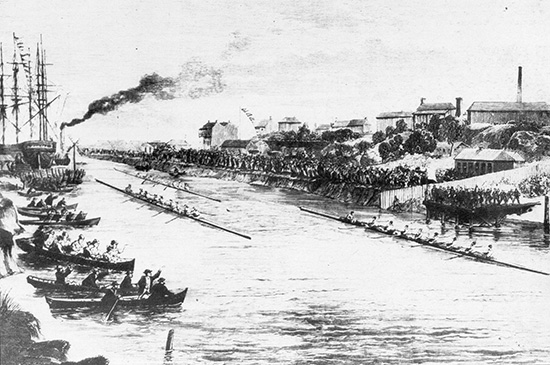
Interest was strong in the Maribyrnong as a playground in the 19th Century and several commentaries from these times indicate solid participation in all forms of sports and other forms of fun and games generally.
Significant in local sporting legend was the winning of the Clarke Cup. This highly prized silver cup, donated by W.J. Clarke. M.L.C., was open to any rowing club in Victoria for an eight oar crew. It had to be won three years in succession to be retained permanently. The first race in 1879 was won by Corio. Next year Footscray won making a world record in the process.

They won the next year too. Then in 1882 they were challenged by the Melbourne crew, which included five oarsmen who had rowed for Oxford and Cambridge. The crowd of 20,000 who had come for the event went mad when the Footscray crew won by three lengths.

There were plans to send the crew to race in England, however it was found that the Rowing Association of Great Britain excluded rowers who did manual labour, which cut out most of the Footscray team.
The Victorian Rowing Association adopted the same rule before the next regatta, also effectively stopping the Footscray team. The cup, however, was won and is still held by Footscray Rowing Club.
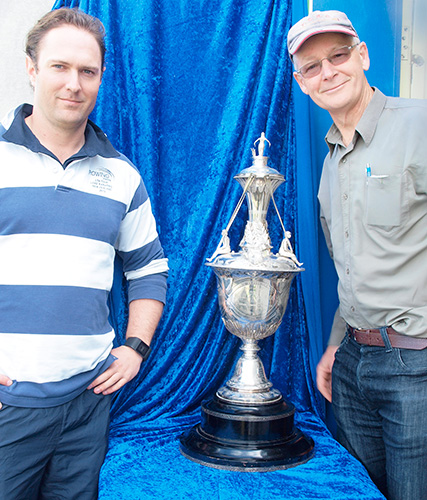

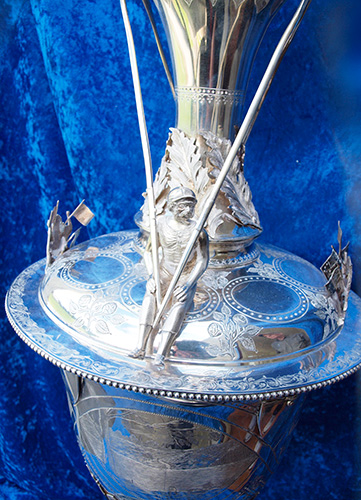
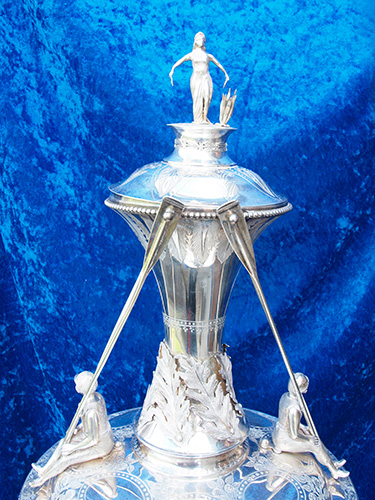
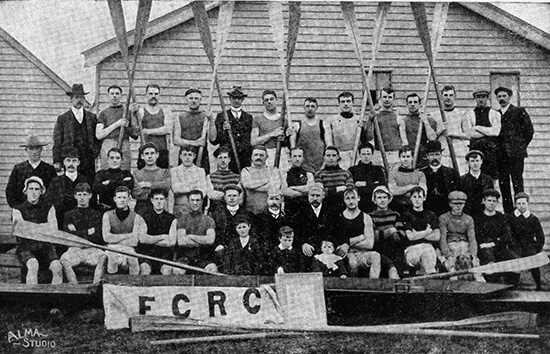
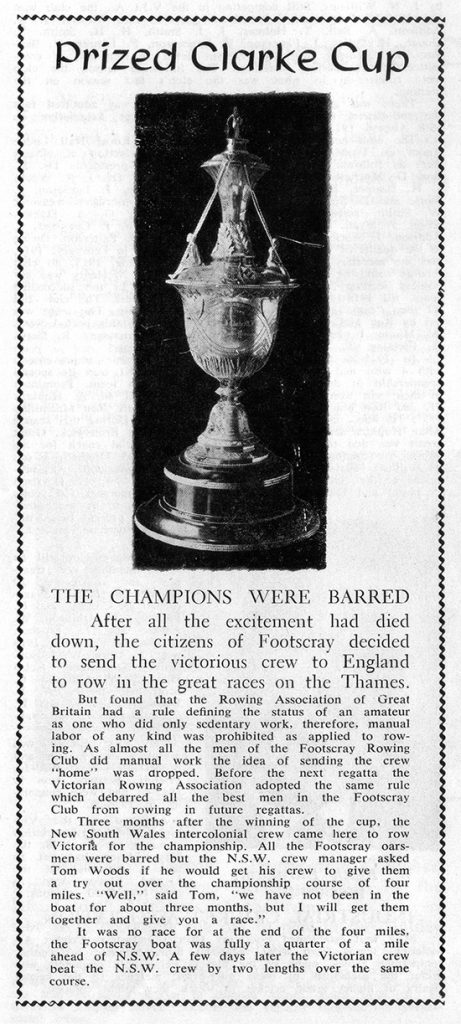
As a point of interest for sports fans the first eight oars race in Victoria was held on the Maribyrnong in 1875 along the stretch of water in front of Henderson’s Piggery, which is now occupied by the Footscray Community Arts Centre.
There seem to be a number of interesting social and political issues surrounding the moves that took place during and after the incredible win of the Footscray team and the rowing bans that followed.
As another point of interest the Clarke Cup for this eight oars race was donated by Sir William Clarke, who owned Rupertswood in Sunbury. Rupertswood is the site of the first game played in the legendary Ashes series played to this day between England and Australia.
The first game of this series was played in 1882. The Clarke Cup was secured by the Footscray Team in 1882. Both of these events say something about the relationship of the colonies with the Mother country at the time and both of these events continue to echo down through the years.
Sir Willian Clarke
http://adb.anu.edu.au/biography/clarke-sir-william-john-3229
Sir Rupert Clarke
http://adb.anu.edu.au/biography/clarke-sir-rupert-turner-5672
